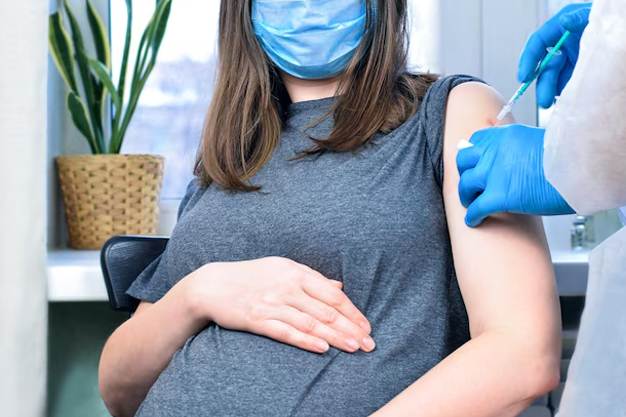They say a mother is born when a child is. But in truth, motherhood begins long before thatmoment. It begins to take shape the moment she dreams of having a child, when her heart quietly begins to plan for a future filled with love and care. In the flurry of advice that surrounds an expecting mother- what to eat, how to sleep, which rituals to follow- one critical conversation often gets overlooked: how to protect the mother and baby from infections that can complicate pregnancy or impact the newborn’s early life, writes Dr Shalini Menon, Medical Director, GSK. She details as to why vaccination during pregnancy is so vital for an expectant mother and her child.
Vaccination During Pregnancy: Why Is It So Important?
Dr Menon states that vaccination during pregnancy is an important health intervention that offers a layer of protection when it’s needed most against certain diseases. When given at the right time, these shots can help protect pregnant women since during gestation their immune systems are naturally altered and more vulnerable.

“Vaccination during pregnancy, just as importantly, can help ensure optimal transfer of mother’santibodies to their babies before birth, shielding newborns during those precious early weeks of life when their own immune defenses are still developing,” she observes.
The doctor goes on to say that newborn babies are usually vulnerable to life-threatening infections such as whooping cough. Most whooping cough-related deaths occur in babies under 2 months of age, and these can be prevented through vaccination during pregnancy. This vaccination, when given during the 2nd or 3rd trimester of pregnancy allows mothers to pass protective antibodies to their babies, shielding newborns from infection until they are eligible for vaccination as part of their immunisation schedule.
It’s a “cost-effective strategy” to provide protection to mothers and newborns. Even though vaccination during pregnancy is of utmost importance, there’s not much awareness around it. Dr Menon agrees and highlights that even though India has been proactively implementing several public health schemes and achieving success through that, there’s not much noise around this particular necessity.
“India has already achieved significant public health milestones, such as eliminating maternal and neonatal tetanus — a success rooted in routine immunisation and clean birth practices. However, awareness and confidence regarding vaccination during pregnancy remains limited,” she says, adding, “That’s why it is important to educate mothers-to-be and their families about the importance of getting vaccinated against infections such as whooping cough to ensure a healthy future for their babies. In fact, once they are informed, mothers-to-be are willing to take every necessary step to protect their children. What they need is timely, trusted guidance to make these choices confidently.”
Don't Miss:Flu, TT & TDAP: 3 Vaccine Shots Every Pregnant Woman Must Get To Protect Herself And Her Baby
Vaccination During Pregnancy: How Can Others Ensure This?

Healthcare providers play a pivotal role. A doctor’s or nurse’s recommendation during anantenatal visit is one of the strongest influential factors in a mother’s decision to get vaccinated.
At the same time, family’s support is vital for pregnant women to take this decision of getting vaccinated. Pregnancy is a vulnerable time for women, both physically and emotionally and at this time, taking such decisions without family’s care and support can feel overwhelming. That’s why conversations around essential vaccinations during pregnancy must begin early - when couples are planning a pregnancy or during the first trimester, when vaccinations can be carefully planned.
Creating a supporting ecosystem is key. Public health systems, policymakers, healthcareproviders and families must work together to create an environment in which vaccination during pregnancy is supported, accessible, and prioritised - not just medically, but emotionally and culturally.
When we “mother the mother,” especially during pregnancy, we strengthen not only her health, but also her confidence, her well-being, and her ability to care for her child. Let’s do more than just celebrating mothers — let’s support them. Let’s ensure that they are empowered with the right information, surrounded by the right care, and protected in every way possible,” wraps up Dr Shalini Menon, Medical Director, GSK.
Don't Miss:9+ Essential Health Screenings Every Woman Should Have at Different Ages: Expert Insights
If you liked the story, please share it. For more such articles, stay tuned to HerZindagi.

Take charge of your wellness journey—download the HerZindagi app for daily updates on fitness, beauty, and a healthy lifestyle!
Comments
All Comments (0)
Join the conversation